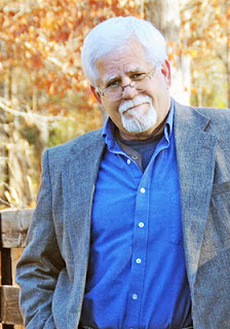 Last year I reviewed Dale Cramer’s Paradise Valley, the first volume in his Daughters of Caleb Bender series about an Amish settlement in Mexico in the 1920s. In January I reviewed its sequel, The Captive Heart. I liked them both. I liked them enough to review them on this blog and not merely say something polite on Amazon or Shelfari. But THIS is the book you really want to read. In fact, Levi's Will stimulated so many thoughts that I will be spreading this review over two days. Today we deal with the non-violence theme that Dale and I discussed when I reviewed The Captive Heart. Come back tomorrow to hear more about the theme of grace found in this 2006 Christy Award winner. Although written earlier, Levi's Will takes place a generation later. Will was born in the Mexican colony of Paradise Valley before they returned to Ohio. At nineteen he runs away from his hard, abusive father, Levi Mullet, into an America deep in World War II. Hiding his Amish upbringing to avoid being returned to his father means giving up the faith and lifestyle in which he was brought up and going off to war in Europe. Levi Mullet brought his young family back to Ohio because “here bandits don’t steal your crops [and leave you to starve]. Because here there are men with guns who will protect you and your crops …. So,” Will asks his younger brother, “how is it right to seek out the protection of men with guns and yet refuse to take part in that protection? Is there not a debt? Is it not hypocrisy?” (p. 59) Will’s sons grow up in the 1950s and 60s—the same period of American history in which the author and I grew up. My parents were not pacifists despite my father’s Quaker upbringing, but I remember them saying of America’s fears of encroaching Communism, “A nation’s security is in righteousness. If we follow just and fair laws, Communism will have no appeal.” In the 60s that meant supporting civil rights for African Americans. In the twenty-first century it might mean revising our tax or immigration laws, or reforming health care so the working poor don’t fall through the cracks. It might even mean civil rights for those with whom we have deep spiritual disagreement. During the 1980s I lived and worked in the then-communist country of Mozambique. A civil war raged around us, but the anti-communists were not the good-guys as I had been brought up to believe. They were the ones who stole the farmer’s crops, leaving people to starve, and slaughtered whole families. I found myself thinking of what my parents had taught me: a nation’s security is in righteousness. If even a communist government enacts just laws and enforces them fairly, its people will have no reason to support rebels who disrupt their lives. On the other hand, if laws are unjust, if corruption is rampant, if the cry of ordinary people goes unheard, they will jump at any opportunity for change, even if it means violence. So what does that say about non-violence and police and army protection? Regardless of Amish teaching, God allowed for war in the Bible—even mandated it in certain cases. I believe that “Thou shalt not kill” refers to murder and not judicial punishment, self-defense or the protection of the defenseless. We DO owe a debt to those who protect us, both on our city streets and in far-off conflicts. But strong armed forces are not our primary defense. Military might will only produce more violence if it is not grounded in justice, righteousness, and compassion for both the people it protects and those it fights. Come back tomorrow for more about the themes of grace and forgiveness in Dale Cramer's Levi’s Will. Dale will be checking in here, so feel free to direct your comments or questions to him.
1 Comment
LeAnne
1/8/2015 12:31:13 am
This post was moved from another site. All comments were lost.
Reply
Leave a Reply. |
AuthorLeAnne Hardy has lived in six countries on four continents. Her books come out of her cross-cultural experiences and her passion to use story to convey spiritual truths in a form that will permeate lives. Add http://www.leannehardy.net/1/feed to your RSS feed.
To receive an e-mail when I post a new blog, please subscribe.
Categories
All
Archives
November 2022
|
 RSS Feed
RSS Feed